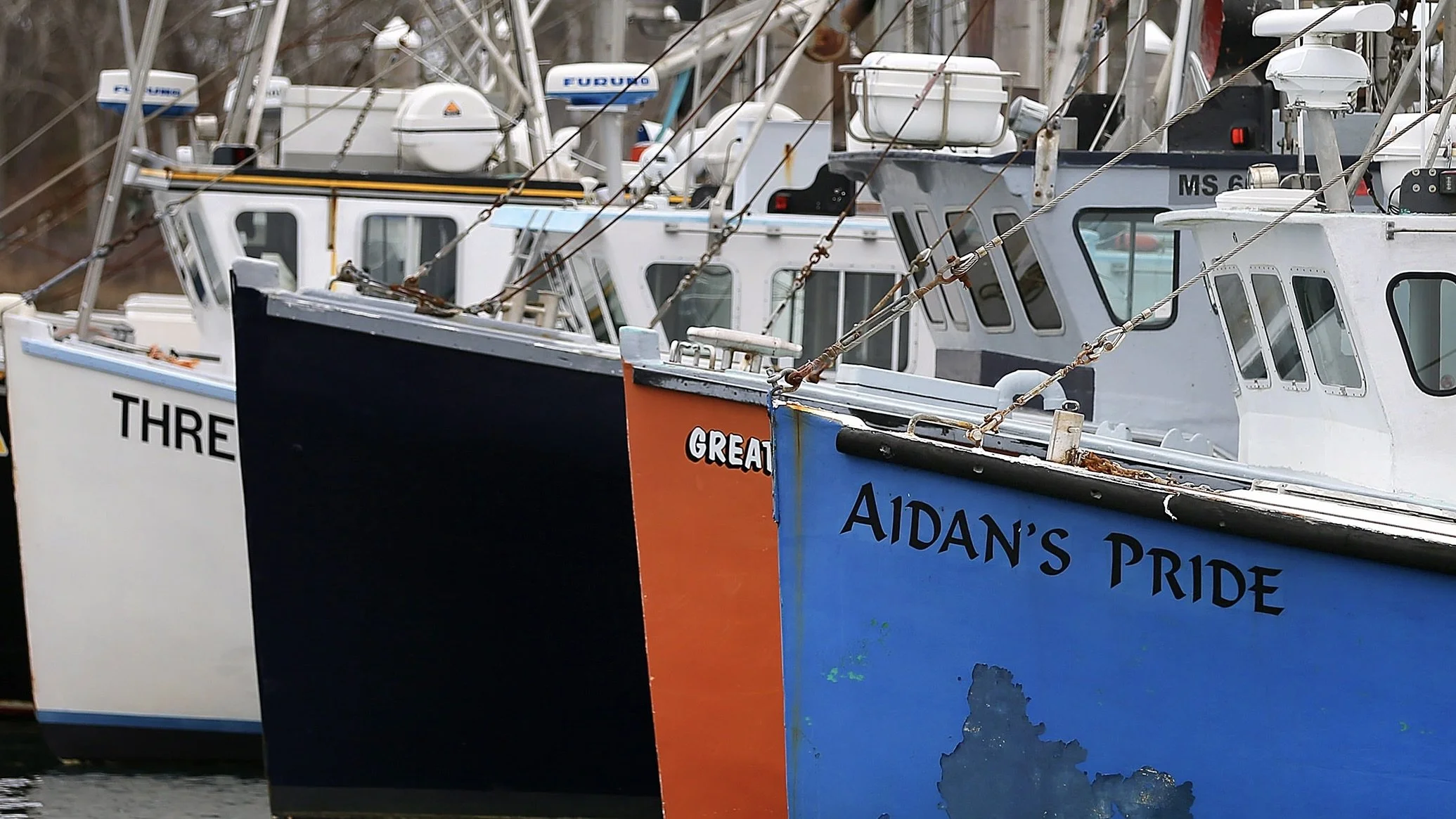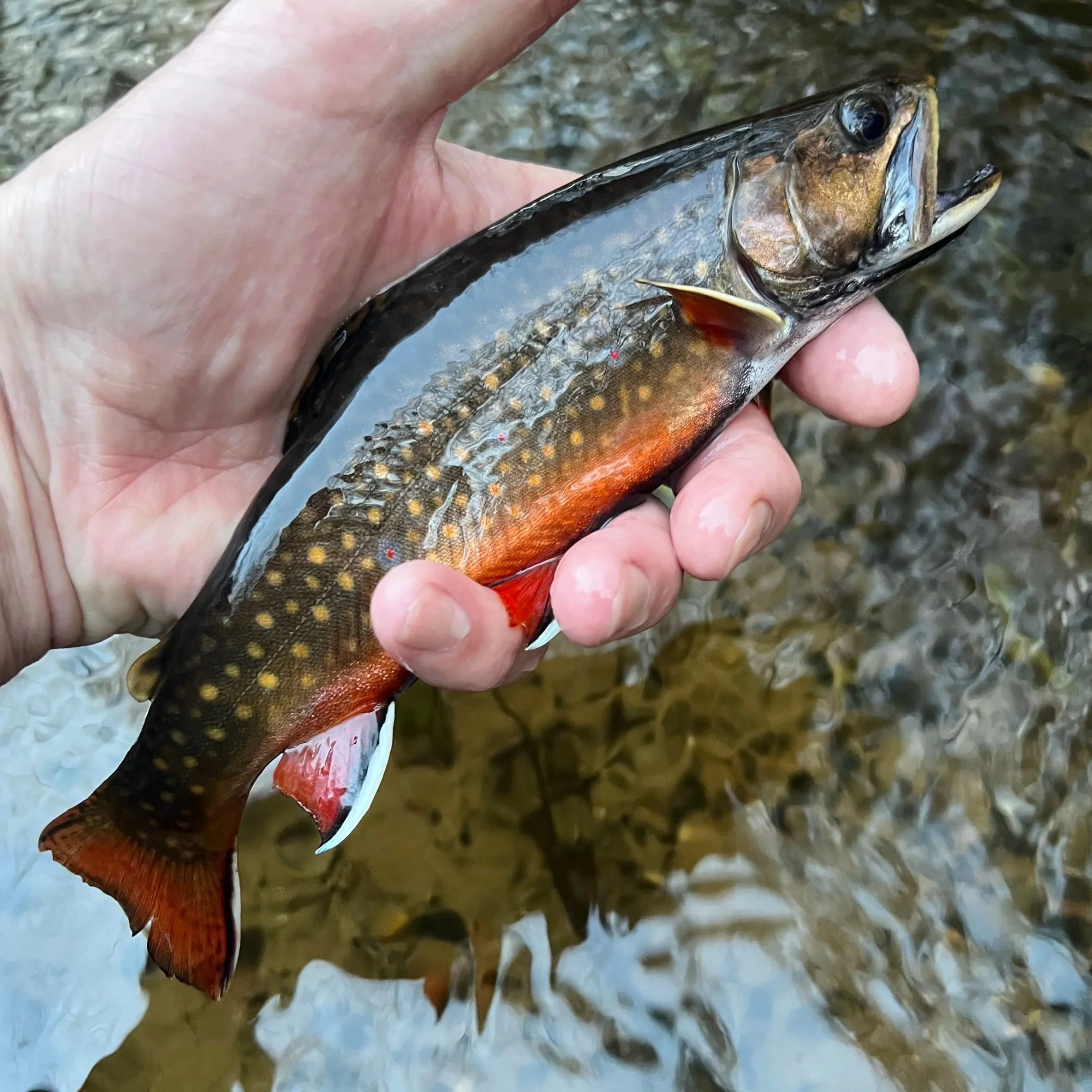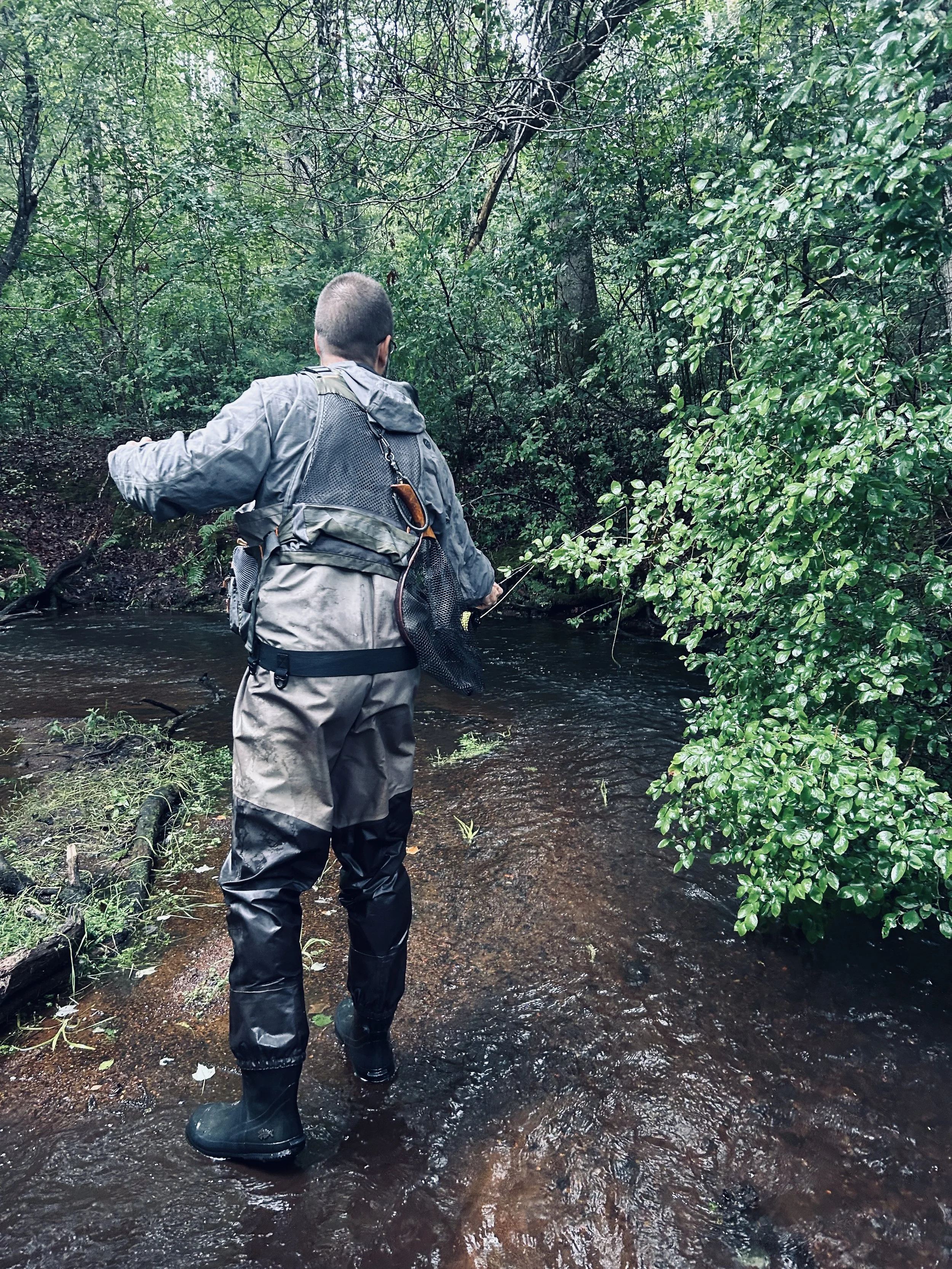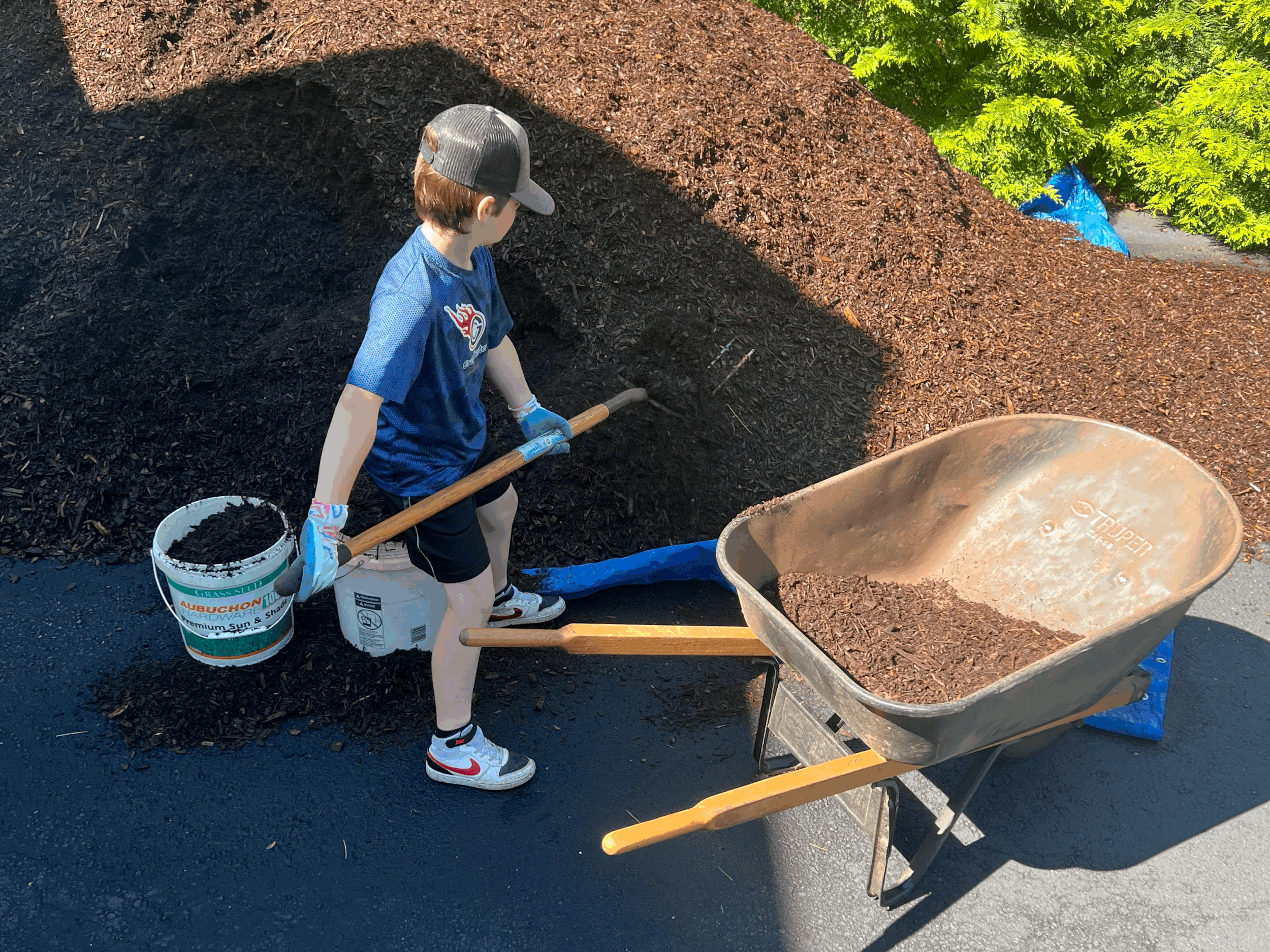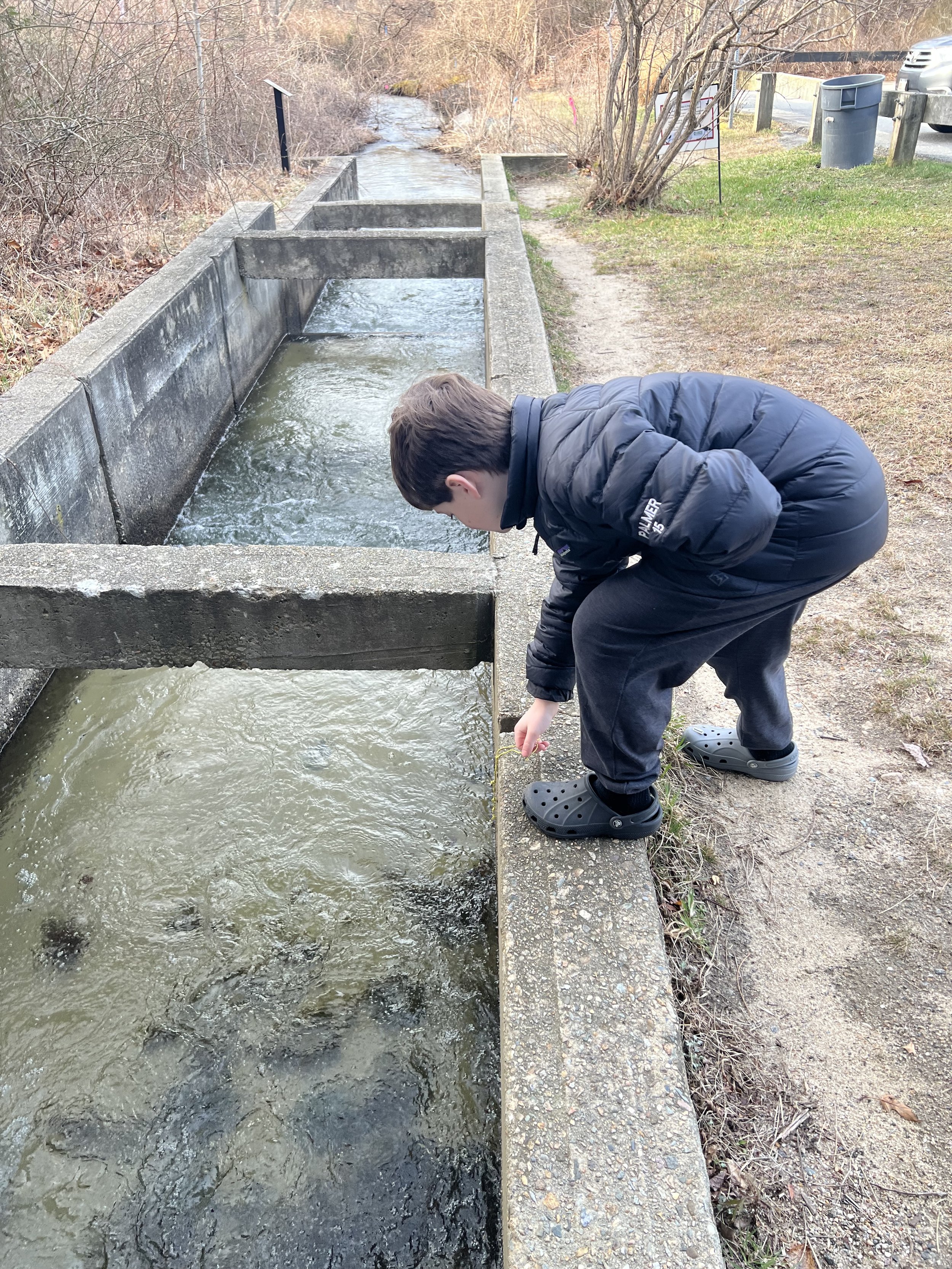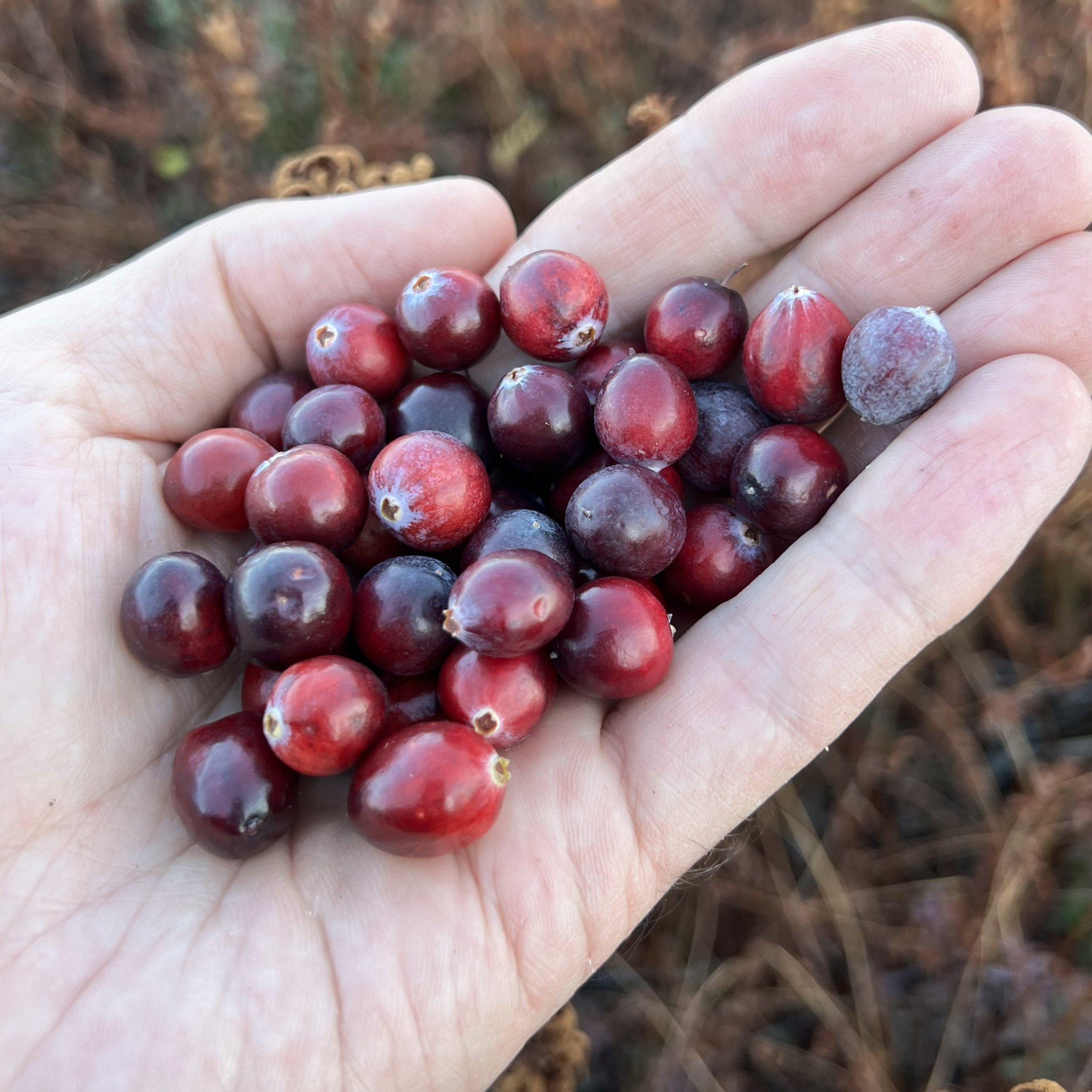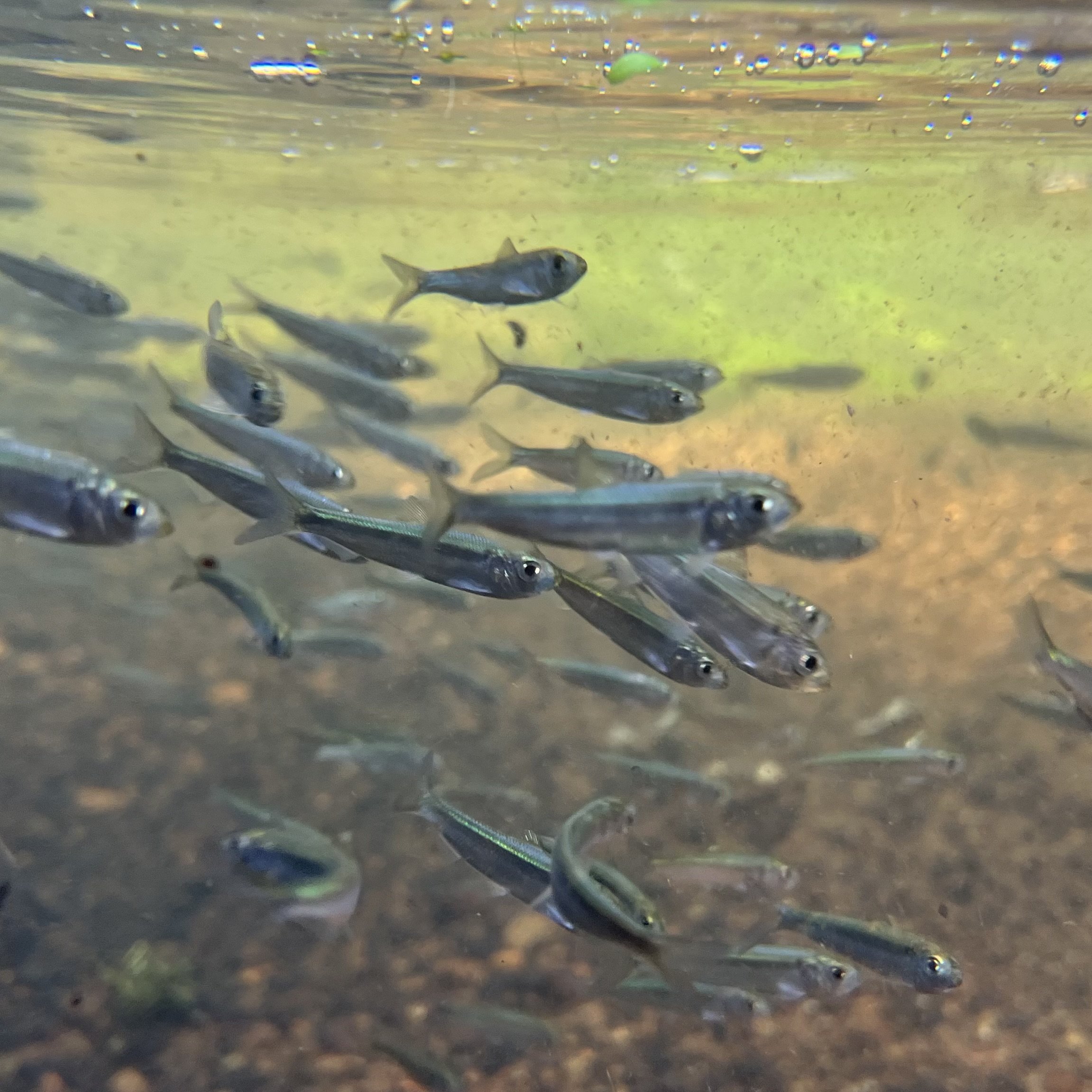Art. Life. Place. - A Blog
Another Vessel Goes Down
A fishing boat goes down in winter water, and a familiar kind of silence spreads outward from the sea. The headlines arrive in clipped phrases, but what they point to is deeply human: a small crewed world that left the dock as a working team and didn’t return as expected. Each person aboard mattered—not as a role, but as a life with people waiting on shore, holding memories, routines, and unfinished plans. This is the part that doesn’t fit inside updates: the way work becomes absence, and absence becomes a new shape in a community. What lingers isn’t the harsh clarity of facts, but the softer, heavier truth behind them.
What We Risk by Not Looking
A fall walk along the Upper Quashnet reveals a trout redd in the headwaters—bright, newly turned gravel and the quick, urgent movement of fish using it. It’s the kind of detail that’s easy to miss and hard to replace once conditions shift. With a grandfathered development proposed beside this stretch of river, the focus isn’t simply on whether change happens, but on how it happens: how stormwater is handled, how wastewater is treated, how water balance is maintained, and how long-term operations and maintenance are enforced after construction fades from view. The piece also reflects on what’s at stake downstream—an already stressed bay and decades of restoration work—and why staying engaged in the “how” is one of the most practical things a community can do.
Haddock, Quotas, and the Politics of Science
The Gulf of Maine haddock story is a rare case where the science was embraced—right up until the quota tightened. Haddock, the unglamorous workhorse behind New England’s scrod habit, can deliver boom year classes that remake a fishery, and the tension snapped when haddock became limiting at the exact moment fishermen felt surrounded by fish. Alternative narratives surged—most notably a spillover theory from Georges Bank—but the evidence wouldn’t carry them. The real turning point was simpler and more powerful: new, home-grown Gulf of Maine year classes entered the population, the numbers finally caught up, and quotas rose. Just as quickly, the controversy drained away—revealing how often “trust in science” hinges not on the methods, but on whether the answer hurts.
Bankers’ Hours to Bankruptcy: the Collapse of Gulf of Maine Cod
A first-person account of how Gulf of Maine cod went from a seemingly rebuilt stock—fueled by “bankers’ hours” trips close to port and optimistic assessments—to a collapse that rewrote the science, the politics, and my career. Drawing on years spent on NOAA survey decks and in assessment rooms, the piece unpacks how sand lance hot spots, hyperstable catch rates, shifting stock structure, industry-funded “science for hire,” and a rapidly warming Gulf of Maine combined to mask just how deep the trouble ran. It’s a story about models that kept revising the past downward, a management system that leaned on optimism whenever uncertainty appeared, and a once-iconic stock that has since been carved into multiple units on paper even as its regional footprint has faded from the water—and about why, even after walking away from federal cod assessments, I still root for the fish and the communities that rise and fall with them.
What the River Remembers
I went to the Mashpee Archives expecting dust and nostalgia and found a ledger that lingers in my mind. W.D. Sargent’s 1933 survey reads like field notes I could’ve written yesterday—warm traps, cool seeps, tight valley walls—and then two watercolor plates stops me cold: a 15-inch sea-run brook trout, mid-May, above Amos’ Landing, an 8 ½-inch freshwater form upstream. Not myth but measurements and observations. That pairing—spare notes and two trout watercolor plates, one fresh, one salt—gives me a working hypothesis: keep water cold and moving, keep the bay connected, and this river can write both chapters again. The piece walks from history to a punch list—shade, wood, better culverts, fewer heat traps, protected springs—and asks the only question that matters: could fifteen inches, wild and unstocked, be ordinary again?
Rivers, Restrictions, and Responsibility: How Cape Cod Protects Its Land and Water
Conservation restrictions (CRs) are a powerful tool for protecting Cape Cod’s rivers, wetlands, and open spaces. By limiting development while keeping land in private or municipal ownership, CRs allow ecosystems to recover and thrive. The Childs River exemplifies this success, with former cranberry bogs transformed into vibrant wetlands supporting brook trout, river otters, and herons, thanks in part to the Falmouth Rod & Gun Club. Along the Quashnet and Mashpee rivers, CRs enable habitat restoration, improve fish passage, and maintain water quality. Tools like the MassGIS Open Space & Conservation Restrictions map help residents understand protections and support long-term ecological and community benefits.
Restoring What Remains: the Mashpee River’s Split Identity
Cape Cod’s Mashpee River is a study in contrasts: its lower reaches remain a coldwater stronghold, spring-fed and shaded, with clean gravel beds and woody structure that support brook trout, river herring, and other native species. In the upper river, however, a century of cranberry farming left behind straightened channels, drained wetlands, outdated dams, and shallow, warm waters that stress fish and limit migration. Restoration is now underway to remove barriers, restore meanders, and reconnect the river to its floodplain, improving habitat and water quality. With these efforts, the Mashpee River has the potential to once again function as a connected, thriving coldwater system from source to sea.
Confluence: Where Water, Stories, and a Life's Work Meet
From a childhood exploring hidden brooks in northern Massachusetts to years as a NOAA fisheries scientist at sea, my life has been shaped by the confluence of curiosity, observation, and discovery. That journey led me to found the Waquoit Bay Fish Company, blending art and science to make ecological data tangible and to connect communities with the waters they rely upon. Returning to freshwater restoration work with the Association to Preserve Cape Cod, I now guide streams back toward health, teaching the next generation—including my own children—to fish, observe, and care for these ecosystems. Watching herring migrate upstream, I see my own path mirrored: a life coming full circle, where science, art, and lived experience converge, and where the currents of past and present meet in a shared, living connection with the natural world.
Wings, Songs, and Soil: Cicada Brood XIV Returns to Cape Cod
This spring, parts of southeastern Massachusetts, including Cape Cod, are experiencing a rare natural phenomenon—the emergence of Brood XIV, a group of periodical cicadas that surface only once every 17 years. These red-eyed insects are making their presence known with a loud, persistent chorus as they complete a brief reproductive cycle before returning underground until 2042. While startling in scale and sound, the emergence poses no threat to people or property and plays an important ecological role, enriching soil, feeding wildlife, and signaling long-term forest health.
Just Do Something!
The other day, while sweating through yard work with my kids, I was reminded of a simple but powerful truth: when you’re stuck, the worst thing you can do is nothing. I wasn’t trying to teach them to love pulling weeds or spreading mulch—I was showing them (and reminding myself) that action, no matter how small or imperfect, is what gets us unstuck. Whether it's picking up the shovel, writing a bad first paragraph, sending a half-hearted email, or just sweeping the garage, forward motion matters. I've learned that mistakes are more helpful than standing still, and that perseverance is built through doing—not thinking. You don’t have to get it all right. Just do something!
Why I Fish
Fishing isn’t about the catch. It’s about stepping into a place where wild things still happen—a world that moves on its own rhythm. It’s the feel of gravel beneath my boots, mist rising softly off the water, and the sudden flash of a brook trout slipping through shadows. It’s the unexpected moments—a heron’s flight, the splash of an otter, the light dancing on a riffle—that make each day a discovery. Fishing gives me a reason to linger, to watch, and to become part of something greater. It’s about witnessing the wild, and honoring the mystery of the river. That’s why I fish.
Out Back, Once More
The “out back” behind my childhood home was where I first felt the quiet pull of nature. Long before I became a scientist, I was just a kid chasing frogs, listening to the murmur of brooks, and learning to see the world through a lens of curiosity and wonder. My first career took me into the vastness of marine systems, but it’s the closeness—the intimacy—of those early freshwater places that never let go. Now, I find myself coming full circle, drawn once again to the quiet magic of backyard streams and wetlands, and watching my own kids uncover wild corners of their own. We all need an “out back”—a place to roam freely, without agenda, where the natural world speaks in its own rhythm. It’s in those unhurried, openhearted moments that a lifelong connection to nature takes root.
Unraveling the Secrets of the Salter: Tracking Brook Trout on the Quashnet River
Once reshaped by cranberry farming, the Quashnet River has rebounded over the past 50 years into a thriving Brook Trout habitat. To study these elusive fish, scientists use PIT tagging—tiny microchips that track movements without recapture. The data collected is now showcased in an interactive dashboard, providing insights into trout migrations and habitat use. This research reveals the secrets of "salter" trout and highlights the need to protect both freshwater and estuarine habitats. The Quashnet’s recovery is a testament to resilience, science, and community dedication.
Salters: Reclaiming Cape Cod
Cape Cod’s sea-run Brook Trout, or "salters," are making a remarkable comeback after centuries of decline, thanks to dedicated conservation and restoration efforts. These migratory fish once thrived in the region’s cold, spring-fed streams but faced significant habitat loss due to water-powered mills, agricultural development, and infrastructure changes that disrupted their migration routes. The restoration of Cape Cod’s rivers and streams—removing barriers, restoring wetlands, and reestablishing natural flow—has revitalized these habitats, allowing salters and other species to thrive once again. Beyond being a success for Brook Trout, these efforts also benefit entire ecosystems, improving water quality, supporting biodiversity, and providing vital resources for local communities. Despite ongoing challenges, communities across Cape Cod are committed to safeguarding these vital waterways, ensuring that future generations can enjoy the beauty and ecological richness of restored coldwater streams.
Life Lessons from a River Herring Run
Each spring, when the river herring return, the water comes alive with flickers of silver scales. It’s at these runs that I bring my children, not just to watch, but to learn about the rhythms of nature. My father nurtured my love for the outdoors, teaching me to fish and introducing me to the birds and the trees, sparking my curiosity and shaping my career as a scientist. Now, as a father, I aim to pass those same lessons on to my children. Over the years, I’ve encouraged them to get involved, counting fish and contributing to conservation efforts. These visits show my children that nature is not separate from us—it’s a part of who we are, and our actions matter. I hope they carry these lessons with them, remembering the wonder and responsibility of being part of something bigger, and that they’ll protect it as they grow.
River Herring Conservation Starts with You
Each year, millions of river herring swim up Cape Cod’s rivers and streams to spawn, playing a vital role in local ecosystems. Volunteers are crucial to monitoring their migration and ensuring their continued presence on the Cape. By volunteering as a herring counter, you help track these important fish, supporting conservation efforts that protect wildlife and ecosystems. Volunteers count herring at designated sites, with training and support provided. This is a rewarding opportunity to make a difference, learn about nature, and enjoy the outdoors. Sign up today to help protect the future of herring and Cape Cod’s rivers.
Source to Sea
The "Source to Sea" initiative, led by the Waquoit Bay National Estuarine Research Reserve, focuses on engaging the community in restoring key rivers in Mashpee and Falmouth, including the Upper Quashnet River, Red Brook, and Mashpee River. The project emphasizes fish passage, coldwater brook trout habitats, and community engagement. Critical partners, including the Association to Preserve Cape Cod (APCC) and the towns of Mashpee and Falmouth, have been instrumental in securing funding and supporting restoration efforts. In collaboration with the Mashpee Wampanoag Tribe, the project integrates local cultural and ecological knowledge to ensure sustainable and respectful restoration strategies. Community members are encouraged to participate in visioning meetings, helping to shape plans that reflect local values and priorities.
Harvesting Cape Cod’s Wild Cranberries
The crisp autumn air nipped at our noses as we pulled on our waterproof boots. My family and I were about to embark on a cranberry-picking adventure amidst the coastal dunes of Cape Cod. The cranberries grow in the low-lying coastal swales, hidden amongst the small seasonal ponds and dune plants. Here they thrive in the sandy, acidic soil. As we navigated the terrain, our eyes scan the horizon for the telltale signs of cranberry vines - a creeping plant adorned with clusters of bright red berries. Kneeling down, we carefully picked through the vines, filling our bags with the sweet, tart fruits. The rhythmic motion of picking was both soothing and satisfying - a wonderful way to connect with nature and appreciate the beauty of the Cape.
The Silent Exodus: River Herring's Perilous Journey Back to the Ocean
River herring play a vital role in Cape Cod's ecosystem. Each spring, they migrate from the ocean to freshwater ponds to spawn. Their presence provides a food source for larger predators like striped bass and ospreys.
However, their journey back to the ocean in autumn is fraught with dangers. As water temperatures drop, herring congregate near pond outlets, waiting for the right conditions to depart. The journey is challenging, with obstacles like shallow waters, impassable barriers, and lurking predators.
Despite their resilience, river herring populations face threats from habitat loss and overfishing. Conservation efforts are crucial to protect these valuable species and ensure their continued migration for future generations. The annual exodus of river herring is a testament to the delicate balance of nature and the importance of preserving our ecosystems.
Beech Trees and Brook Trout
Ecology is an interesting thing - it brings into focus the fascinating connections within the natural world. On Cape Cod, beech trees play a vital role in maintaining healthy trout habitats. Their dense canopies provide shade, regulate water temperatures, and prevent excessive aquatic vegetation growth. However, a new threat looms - beech leaf disease. Caused by a non-native nematode, this disease is rapidly spreading and could have devastating consequences for both beech trees and the trout that depend on them. It's a reminder of the interconnectedness of nature and the importance of protecting our ecosystems.

